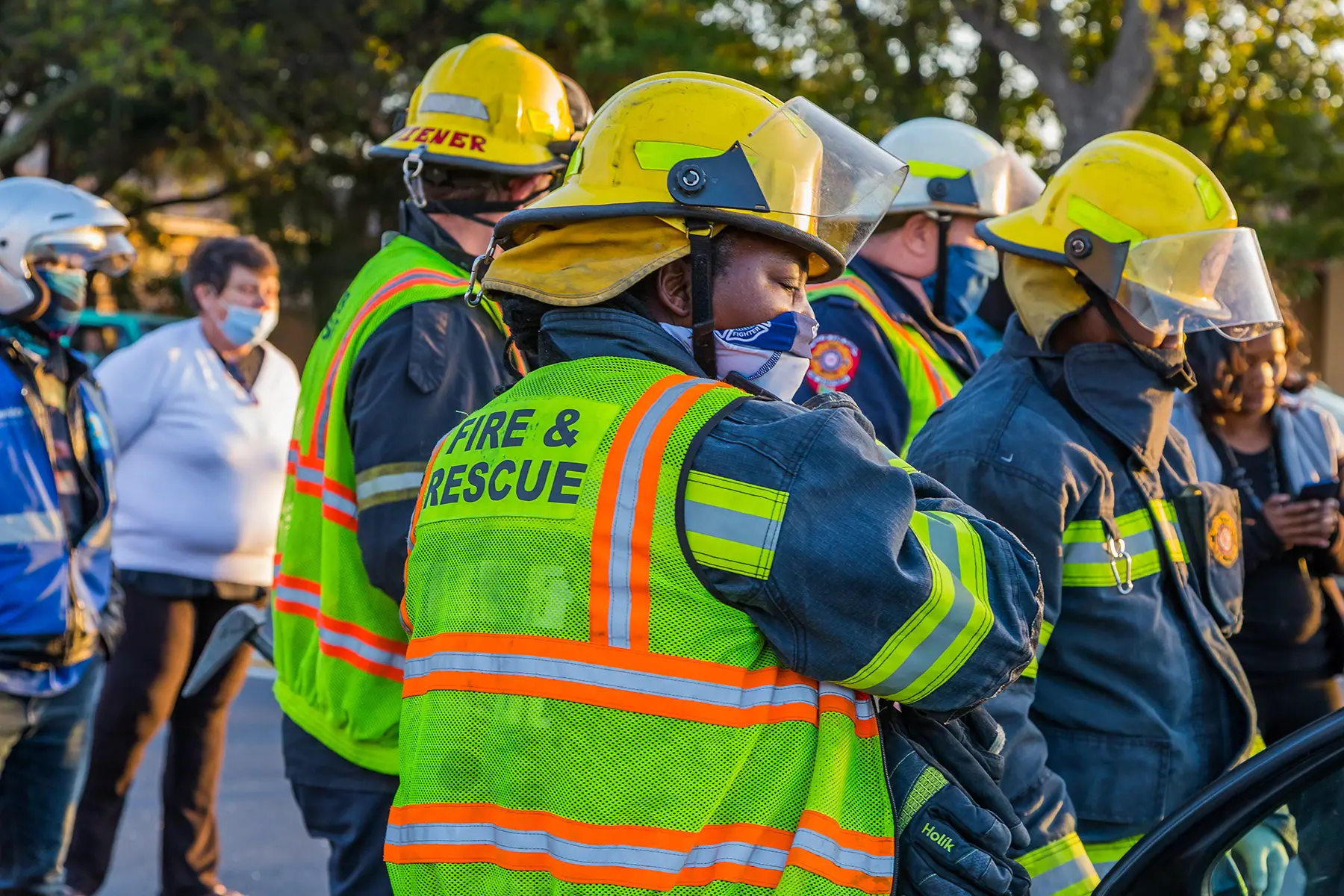If you are planning on having a baby in South Africa, it’s important to research the rules regarding parental leave, child benefits, and the birth register. For expats with private health insurance in South Africa, maternity care is of a high standard and there are just a few differences from the process back home. However, as with other forms of healthcare in South Africa, public services lag behind those offered by private hospitals.
Here, we explain the common processes involved when having a baby in South Africa:
- Pregnancy and childbirth in South Africa
- Accessing maternity services in South Africa
- Insurance for maternity costs in South Africa
- Pregnancy testing in South Africa
- Prenatal care in South Africa
- Giving birth in South Africa
- Postnatal care in South Africa
- Registering a birth in South Africa
- Parental leave in South Africa
- Child benefits in South Africa
- Useful resources
Cigna Global
Expecting a baby in South Africa? Enjoy peace of mind with Cigna Global’s private healthcare. Gain access to top maternity care, pediatricians, specialists, and a global network tailor-made for your growing family. Start your parenting journey with confidence – Cigna Global has you covered.
Pregnancy and childbirth in South Africa
Many South African women tend to opt for government hospitals, as it is more affordable than private maternity facilities. The country currently has 216 private hospitals and 342 public hospitals. However, private hospitals are often more reputed in terms of service quality.
You’ll deal with the same specialist throughout your pregnancy. Whether you choose to have a midwife or a gynecologist is up to you. Either way, you will be seeing a lot of your chosen specialist; it’s important to meet them first and feel you can build a positive relationship.
If you go for private maternity facilities, be aware that this option can be more expensive; it’s around R45,000 to R50,000 in total. Costs depend on the hospitals’ rates, the rates of your chosen specialist, and other factors such as potential baby care. Make sure to check what your insurance covers beforehand.
If you’re looking for top-quality maternity or antenatal care when planning to give birth in South Africa, there’s no reason why you can’t find it in the country. However, some things might be a little different to what you’re used to, for example, South Africa has remarkably high levels of cesarean sections – in fact, according to the Council for Medical Schemes’ annual report. In some cities this figure is even higher, so your clinic might assume a C-section is your preference. This means it is important to find the right clinic in advance, especially for a natural birth.
Accessing maternity services in South Africa
You’ll need to do a bit of research to find the right place if you want to give birth in South Africa. Specialists here tend to work for a specific hospital. As you’ll deal with the same person throughout the process, it’s important to choose your location wisely. Read our guide to South African hospitals for more information.
With this in mind, most hospitals offer tours of their birthing centers. When visiting, make sure you prepare any make-or-break questions you want to ask; for example, will your partner be able to stay with you or can you have a private room? While it’s important to ensure the clinic meets your basic requirements, make sure to follow your gut instinct. Doctors and staff can answer queries you might have about joining the birth register in South Africa and antenatal care in South Africa.
Expatica’s guide to healthcare in South Africa offers an overview of the system for parents-to-be.
Insurance for maternity costs in South Africa
To what degree you receive coverage for the costs of having a baby in South Africa depends on your health insurance scheme. Some insurers insist that you have a policy with them for a set amount of time (in some cases 10 months) before they cover your hospital costs.
Giving birth in South Africa can be an expensive business, as you’ll need to pay your gynecologist (or midwife) and the hospital. In many cases, it is possible to take some of the hassle out of the process; you should be able to set up payments between your insurer and the hospital to save you the need to manually recoup each medical bill yourself.
The following international health insurance firms offer expat-friendly packages that include dental coverage in South Africa:
Pregnancy testing in South Africa
If you think you’re pregnant, go to the nearest clinic or doctor for a pregnancy test. You will have to fill in a patient form, and do a blood or urine test. Note that the test is free of charge in government-run facilities, whereas private facilities will charge a small fee. You can also go to any pharmacy to get a pregnancy kit.
Prenatal care in South Africa
When having a baby in South Africa, the first thing to do is to plan a prenatal visit. You will have an appointment with a professional nurse or midwife. They confirm the pregnancy and perform blood tests before planning a sonar appointment to check the health of your baby. Under 20 weeks of pregnancy, you will have sonar, along with the very first photographs of your baby.

During the first visit, you will also be asked about your health history. They will perform different physical tests, including a pelvic exam. You will then have regular visits to follow up on you and your baby’s health; weight, blood pressure, and urine will be checked during every session.
You’ll also receive different informative documents about delivery, prenatal, and postnatal care, and a provisional delivery plan with your (estimated) due date, important contact numbers, and so on. You also get your Maternity Case Record (MCR): this national document is updated throughout your pregnancy. Keep it with you until the birth of your baby.
If you notice any complications, out immediately to your clinic or hospital and present your MCR.
If you need the help and support of a doula (non-medical birth companion), different organizations provide this service in South Africa. Most of them are available online:
For more information, you can also check the website of the South African Society of Obstetricians and Gynaecologists and the website of the Midwives Society of South Africa.
Scans, tests, and checks
Scans in South Africa usually take place between 11 and 13 weeks and between 18 and 22 weeks. You will also have regular ultrasounds (in some places as often as every month if you so wish). Some clinics even offer a 4D scan after 26 weeks.
All pregnant women receive tetanus toxoid (TT) immunization, but you should ask your doctor or specialist to know more about any other vaccination you should have during your pregnancy.
Antenatal classes
You can find several types of antenatal classes in South Africa, online or offline. They typically cover every question you might have about pregnancy, delivery, and postnatal care (like breastfeeding). They also provide support for parents-to-be. Most of them cover the following topics in six to eight weeks; pregnancy, birth, labor, pain relief, breastfeeding, baby care, postnatal depression, and so on. Check beforehand if your insurance covers antenatal classes, and if the instructor is a member of the Childbirth Educator Professional Forum.
Giving birth in South Africa
Before giving birth in South Africa, make sure that you have booked a bed in the facility of your choice. Your gynecologist will give you more details about when exactly to do that, and at which hospital(s) she or he will be able to help you during the delivery. You will also be provided with a hospital admission. You should also discuss pain relief options before delivery, as epidurals are generally unavailable.
Your stay at the hospital or clinic may vary from four hours to weeks, depending on potential complications. Remember to always keep your Maternity Case Record with you.
If you decided to have a home birth, your homebirth midwife will come to your house when desired. They help you throughout labor; before leaving the house after making sure that both you and your baby are stable.
Postnatal care in South Africa
Postnatal care starts in general six hours after the birth. After the birth, your paediatrician will usually visit you to discuss the next steps. The umbilical cord will be checked every day during the first three days. You also receive support by the health facility staff on matters like feeding options. You’ll have follow-up appointments to have your health checked.

The South African government’s website recommends to reach out to your nearest clinic for postnatal care.
Good to know: you will be given a Road to Health Chart (RTHC) at your health facility. This is a record of your baby’s health for the next five years.
You can find a lot of postnatal classes to help you take your first steps as a parent. These classes generally cover baby care and safety, feeding options, stimulation of the child, first aid and hygiene, and so on. Prices differ depending on the institution, but always make sure to check the certifications of the instructor beforehand.
Vaccinations
After birth, your baby will receive important vaccinations such as BCG – which protects your child against tuberculosis. It is up to you how soon you arrange optional vaccinations, and you can either visit your pediatrician or a clinic in your local area to arrange them.
Nurseries and childcare
Many expats living in South Africa choose to either employ au-pairs or nannies to look after their children while they work.
When your child is a little older, South African pre-schools are split into two age groups. The first, pre-grade reception, covers children up to four years old, while the second is for children who are five and six. Compulsory education doesn’t start until the age of seven.
The South African government wants to ensure all crèches and nurseries in South Africa are regulated by the Department of Social Development, and have passed inspections from the Department of Health. All childcare facilities for six or more children need to have a registration certificate under the proposals. See if the crèche of your choice is registered here, and also check our guide to childcare in South Africa.
Breastfeeding
Breastfeeding is more and more encouraged in South Africa, and non-profit organizations such as Save the Children have noticed an increase in the breastfeeding rate over the last few years. Also interesting to know for mothers returning to work: you are legally entitled by the Basic Conditions of Employment Act to two 30-minute breaks per day for breastfeeding, if your baby is under six months.
Registering a birth in South Africa
Once you have gone through childbirth in South Africa, there is no rush to register it with the relevant authorities.
In most cases, it is easy to complete the formalities. Some hospitals in South Africa provide you with the relevant paperwork while you are still admitted, meaning you could send the paperwork off and get your child’s birth certificate in a matter of days.
If this isn’t the case, don’t worry, as you have 30 days to formally register the birth. To do this, you will need to fill in a BI-24 form and submit it to the Department of Home Affairs. Once this is received and processed, you will be provided with a birth certificate free of charge.
Non-residents, visitors, and tourists giving birth in South Africa
If you are traveling and about to give birth in South Africa, you can either be admitted to a state or private hospital, depending on the availability. Note that the costs may vary a lot from one hospital to another, so make sure to check what your health insurance covers beforehand.
Will your child get South African citizenship?
Usually, yes. If you or your partner is a South African citizen or a permanent resident, your child will automatically have South African citizenship. Otherwise, your child can still gain citizenship as long as they have not been given citizenship in another country and their birth has been registered with the South African authorities. Do not forget to ensure your baby joins the birth register in South Africa. The hospital staff assist you in arranging this.
Parental leave in South Africa
Maternity leave in South Africa is regulated under the Basic Conditions of Employment Act. If you’re having a baby in South Africa, you’ll be entitled to at least four months of maternity leave, which you can start four weeks before the expected birth date (or earlier if a medical practitioner certifies it). You also won’t be allowed to work within six weeks of having the baby unless a practitioner signs it off.

Workplace regulations in many industries are agreed through collective bargaining, meaning some industries offer paid or partly paid maternity leave for a fixed number of months. Aside from this, there is no legal requirement that employers must pay you while you are on maternity leave.
Good to know: if you are a full-time worker (working more than 24 hours a week) and contribute to the Department of Labor’s Unemployment Insurance Fund (UIF), you can be eligible to 38% to 58% of your salary, depending on how much you earn.
In November 2018, the new Labor Laws Amendment Act has extended paternity leave in South Africa to 10 days, starting from the day the child is born.
You will need to notify your employer in writing at least four weeks before you are intending to start and finish parental leave.
Child benefits in South Africa
The South African Social Security Agency (SASSA) Child Support Grant is a monthly payment of R420 for parents of (up to six) children under 18. To benefit from the grant, you have to meet different requirements (being the child’s primary caregiver, being a South African citizen, or a permanent resident, and not earning more than R48 000 per year if you are single). You can go directly to the SASSA’s nearest office. Here is a list of the documents you should bring with you.
Useful resources
For more information about having a baby in South Africa, here’s a list of links for you below:




